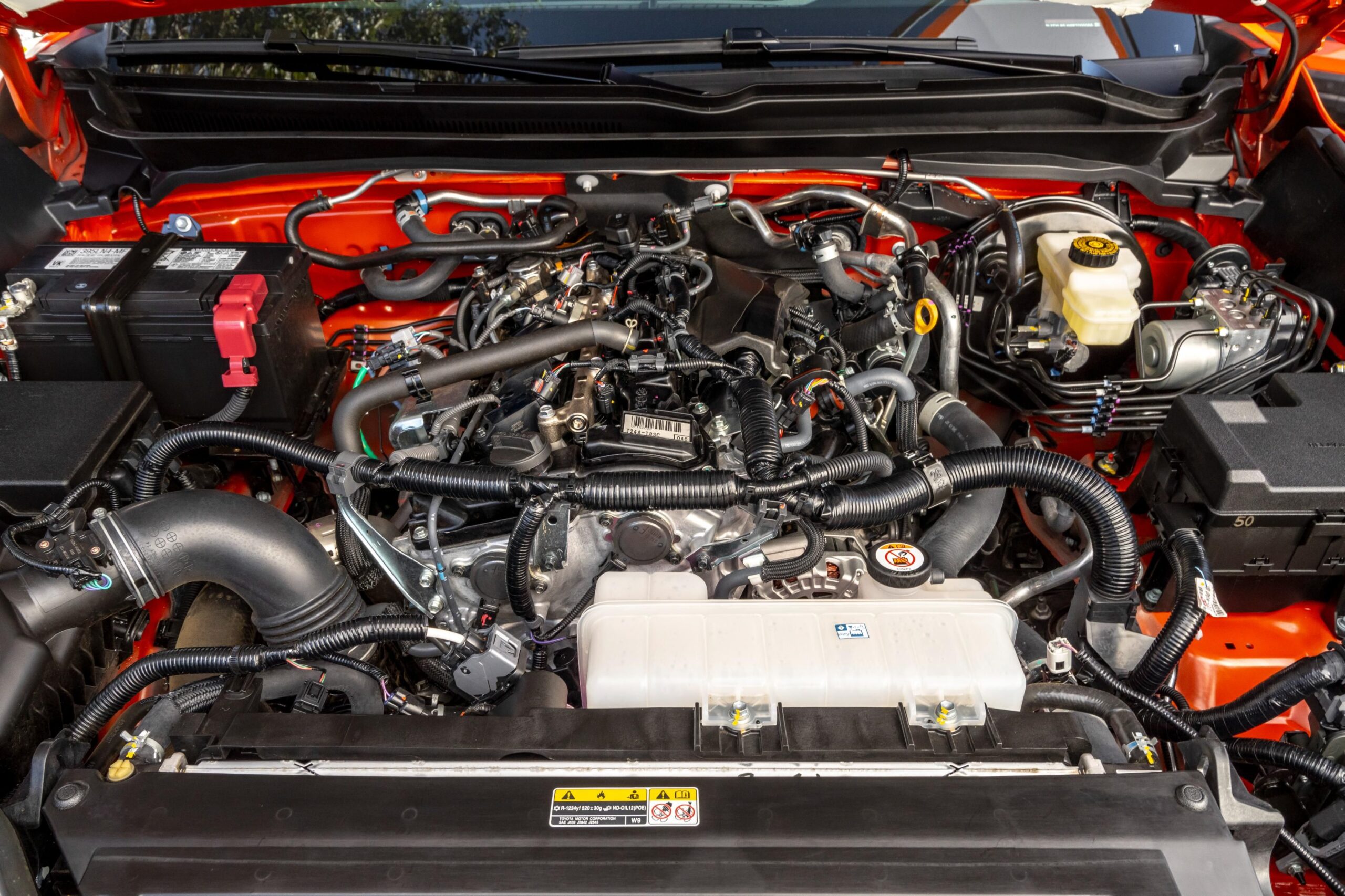The 2017 Chevrolet Colorado is a popular midsize pickup truck that offers a smooth ride, a spacious cabin, and a powerful engine.
However, it also has a major flaw that can ruin your driving experience and put your safety at risk: transmission problems.
Many owners of the 2017 Colorado have complained about shuddering, slipping, jerking, and vibrating when accelerating or downshifting.
These symptoms indicate a faulty torque converter, which is a key component of the automatic transmission.
In this article, we will explain what the torque converter does, why it fails, and how it affects the 2017 Colorado.
We will also discuss the solutions that GM has offered, the recalls that have been issued, and the legal options that you have as a consumer.
By the end of this article, you will know everything you need to know about the 2017 Chevrolet Colorado transmission problems and how to deal with them.
Important Also: Chevy Colorado Frame Lawsuit: Let’s Take You Through Everything About It!
What Are The 2017 Chevrolet Colorado Transmission Problems?
The 2017 Chevrolet Colorado Transmission Problems are a set of issues that affect the performance and safety of the vehicle’s 8-speed automatic transmission. The transmission is the system that transfers the engine’s power to the wheels and allows the vehicle to change gears and speed. The transmission consists of several components, such as the torque converter, the valve body, the fluid, the filter, the cooling system, the sensors, the solenoids, and the computer. Each of these components has a specific function and can cause problems if they malfunction or fail.
-
Faulty Torque Converter
The most common problem that affects the 2017 Colorado is the shuddering, slipping, jerking, and vibrating when accelerating or downshifting. This problem is caused by a faulty torque converter, which is a key component of the automatic transmission that creates a fluid coupling between the engine and the transmission.
The torque converter has a pump, a turbine, and a clutch that work together to transfer the engine’s power to the wheels. When the engine is idling, the clutch disengages to allow the engine to spin freely. When the engine accelerates, the clutch engages to lock the pump and the turbine together and create a direct drive.
However, some torque converters in the 2017 Colorado have a defect that prevents the clutch from engaging or disengaging properly. This causes the transmission to shudder, slip, jerk, or vibrate when the vehicle speeds up or slows down. This can also damage other parts of the transmission, such as the valve body, the solenoids, the sensors, and the seals.
-
Defective Valve Body
Another problem that affects the 2017 Colorado is the hard shifting, delayed shifting, or no shifting. This problem is caused by a defective valve body, which is a part of the transmission that controls the fluid flow and pressure to the clutches and gears.
The valve body has several valves and passages that regulate the transmission fluid and allow the vehicle to change gears and speed. However, some valve bodies in the 2017 Colorado have a defect that causes the valves to stick or leak.
This causes the transmission to shift hard, delay, or not shift at all. This can also damage other parts of the transmission, such as the clutches, the gears, and the torque converter.
-
Transmission Fluid Leaks
Another problem that affects the 2017 Colorado is the transmission fluid leaks. This problem is caused by a cracked or loose seal, gasket, or hose that allows the fluid to escape from the transmission system.
The transmission fluid is the liquid that lubricates, cools, and cleans the transmission. The transmission fluid in the 2017 Colorado is supposed to be a synthetic blend that is specially formulated for the 8-speed transmission. However, some owners have reported that the fluid is contaminated with metal shavings, dirt, or water, which can cause the transmission to leak, overheat, or malfunction.
-
Transmission Overheating
Transmission overheating is also a common problem with this 2017 model. This problem is caused by low or dirty fluid, clogged filters, or faulty cooling systems that prevent the transmission from maintaining a safe temperature. The transmission temperature is affected by several factors, such as the ambient temperature, the driving conditions, and the load on the vehicle. The transmission overheating can cause the fluid to degrade, the seals to fail, and the components to warp or crack.
-
Check Engine Light Or Transmission Warning Light
Another problem that affects the 2017 Colorado is the check engine light or transmission warning light. This problem is caused by a malfunctioning sensor, solenoid, or computer that detects a problem with the transmission and alerts the driver.
The sensors, solenoids, and computers are the parts of the transmission that monitor and control the operation of the transmission.
They communicate with each other and with the engine through electrical signals and codes. However, some sensors, solenoids, and computers in the 2017 Colorado have a defect that causes them to send or receive incorrect or faulty signals or codes.
This causes the check engine light or transmission warning light to illuminate, indicating that there is a problem with the transmission.
What Transmission Does My 2017 Colorado Have?

Your 2017 Colorado has an 8-speed automatic transmission if it has a V6 engine. If it has a 2.5L I4 engine, it has a 6-speed automatic transmission. You can check the engine type by looking at the sticker under the hood or by using the VIN decoder.
What Are Signs Of A Torque Converter Problem?
Some signs of a torque converter problem are:
- Transmission slipping: You may feel the engine revs up when in gear, but the car does not accelerate.
- Rough idling: You may notice that your idle is unstable and varies in speed.
- Rough acceleration: You may experience jerks or shudders when accelerating.
- Car won’t move in drive or reverse: You may find that your car does not respond to the gear selector at all.
- Transmission overheating: You may see a warning light or smell a burning odor from the transmission fluid.
Is The 2017 Colorado A Good Truck?
The 2017 Chevrolet Colorado is a good truck for its size and class. It offers a variety of engines, including a diesel option, and can tow up to 7,700 pounds.
It also has a comfortable and quiet cabin, with a smooth ride and good handling.
However, some drawbacks of the 2017 Colorado are its weak base engine, cheap interior materials, and high price with options.
According to Edmunds, the 2017 Colorado has a rating of 4 out of 5 stars, while Car and Driver gives it a rating of 9 out of 102. U.S. News ranks it as the second-best compact truck of 2017, behind the Honda Ridgeline.
What Year Did The Chevy Colorado Have Transmission Problems?
The Chevy Colorado had transmission problems in the following years: 2015, 2016, and 20181. These problems included vibration, shuddering, slipping, skipping, clunking, surging, and improper shifting.
Some drivers reported that changing the transmission fluid or the torque converter helped, but others said the problems persisted.
The 2018 model year was the worst for transmission issues, followed by the 2015 and 2016 models. Other sources also mentioned the 2004 and 2005 models as having transmission failures.
Also Read: Chevy Colorado Key Stuck In Ignition: Why & How To Fix It?
What Is The Recall On The 2017 Chevy Colorado?

The recall of the 2017 Chevy Colorado is related to a potential problem with the evaporative emissions canister. According to GM Authority, General Motors issued a recall for certain examples of the 2017-2020 Chevy Colorado and GMC Canyon midsize pickup trucks in December 2020. The recall affects 135,400 vehicles in the U.S. and 9,400 vehicles in Canada.
The issue is that the evaporative emissions canister bracket may break, causing the canister to hang below the vehicle or detach completely. This could result in a fuel leak, a check engine light, or a loose or dragging canister. A fuel leak in the presence of an ignition source could increase the risk of a fire.
The remedy for this recall is to inspect the evaporative emissions canister and bracket and replace them if necessary. GM will notify owners of the affected vehicles and provide instructions on how to schedule a service appointment with their dealers. The recall is expected to begin on January 25, 2021.
This is the only recall that has been issued for the 2017 Chevrolet Colorado by the National Highway Traffic Safety Administration (NHTSA). However, there are other complaints and issues reported by owners of this model year, such as transmission problems, engine problems, and electrical problems. You can find more information about these issues on CarComplaints.com or NHTSA.
Are Chevy Colorado Engines Reliable?
The reliability of Chevy Colorado engines may vary depending on the model year and the type of engine. Some of the common problems reported by owners include engine misfires, power steering failures, and transmission shuddering and vibrating.
However, some of the newer models, such as 2020 and 2021, have higher reliability ratings from JD Power and Consumer Reports. The best Chevy Colorado years are 2022, 2021, 2020, 2016, 2012, 2011, and 2010.
The worst years are 2018, 2017, 2015, 2007, and 2004. Therefore, the answer to the above question may depend on which year and engine you are considering.
How Long Do Colorado Engines Last?
The lifespan of a Colorado engine depends on several factors, such as the model year, the engine type, the maintenance schedule, and the driving habits. A well-maintained Chevy Colorado can last up to 200,000 miles or more.
However, some engines may have problems or fail sooner than that. Therefore, it is important to follow the manufacturer’s recommendations and perform regular inspections and repairs to extend the engine’s longevity.
2017 Colorado Transmission Shudder
The 2017 Colorado Transmission Shudder is a common problem that affects some Chevy Colorado vehicles with the 8-speed automatic transmission. It causes the vehicle to vibrate or shake at certain speeds, especially between 50 mph and 70 mph. It may also result in rough shifting or noise from the transmission.
The main cause of this problem is the degradation or contamination of the transmission fluid, which affects the performance of the torque converter. The torque converter is a device that transfers the engine’s power to the transmission. When the fluid is not in good condition, the torque converter may slip or shudder, causing the vibration.
The most common solution for this problem is to flush and replace the transmission fluid with a new type of fluid that has better additives and properties. This can restore the smooth operation of the torque converter and eliminate the shudder. However, some cases may require more extensive repairs, such as replacing the torque converter or the piston seal.
Conclusion
If you own or plan to buy a 2017 Colorado, you should be aware of these transmission problems and the possible solutions.
You should also check the vehicle history, the service records, and the recalls before making a purchase.
You should also contact your dealer or GM if you experience any transmission problems and seek professional help if needed.
By doing so, you can protect your rights and interests as a consumer and enjoy your 2017 Chevrolet Colorado without any worries.
We hope this article has helped you learn more about the 2017 Chevrolet Colorado transmission problems and how to deal with them.
Thank you for reading and stay tuned for more articles on automotive topics.




